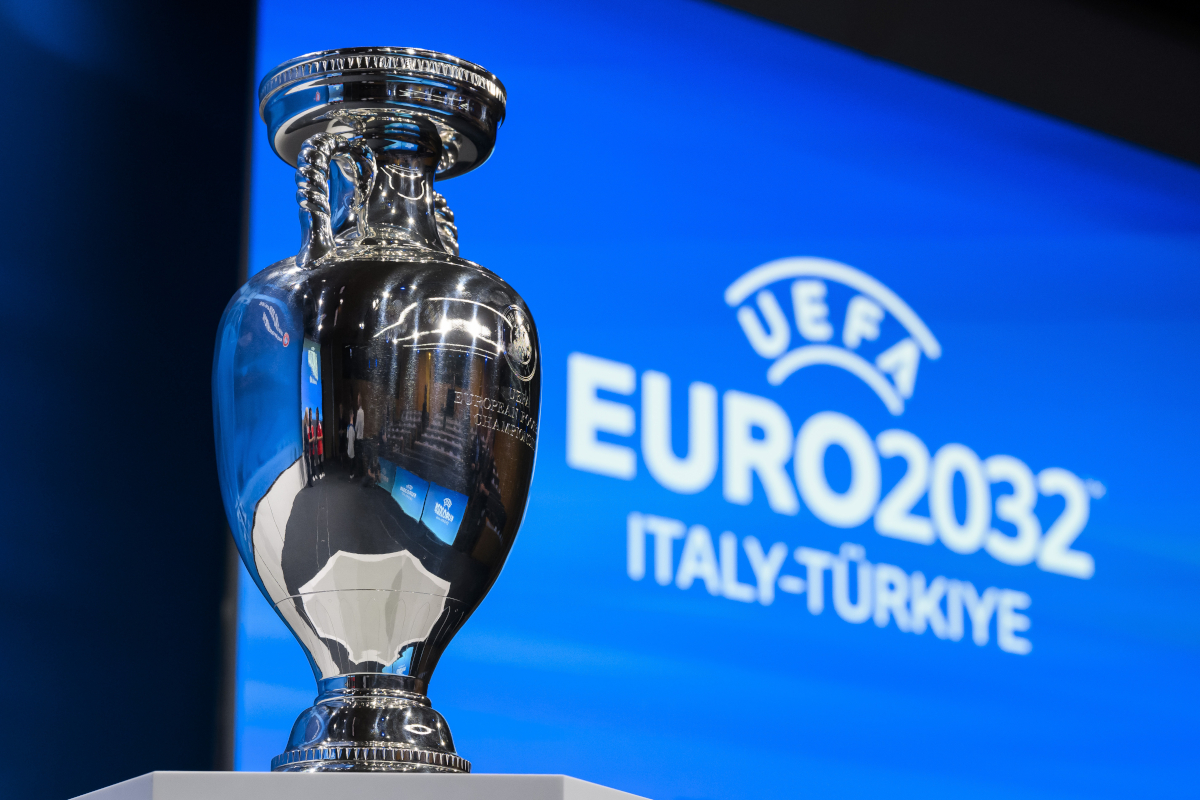
Italian football figures came together to warn ‘EURO 2032 is an opportunity we cannot waste’ to finally revitalise stadiums. ‘This has now become an atavistic problem.’
The sale of the area around San Siro to Inter and AC Milan has finally been accepted, although some legal challenges are still expected before work can begin on building the new arena.
Meanwhile, it is hoped that the fact Italy will co-host the EURO 2032 tournament with Turkey, providing six host stadiums in each country, can provide a firm deadline and investment to get projects approved.
A summit was held in Brussels on sporting infrastructure as motor of urban and social regeneration, attended by figures from Italian and European football.
“EURO 2032 is an opportunity we cannot waste,” said UEFA executive director Michele Uva.
“Let us unite forces. UEFA will be a facilitator with its experience and knowledge. The stadiums that have been either built or revitalised in the last 18 years in the country are all down to personal investment. What Italy needs is an approach from the whole system.
“This is where the European Championships in 2032 represent a big opportunity to step up a level, starting with a change of mentality. As an Italian, I urge everyone to come together, so this can be an advantage for Italian and European football.
“Just look at the €2 billion that were generated by the most recent tournament in Germany, which will be reinvested in youth and women’s football. This is the model to follow.”
Organiser Lara Magoni pointed out that the situation in Italy is particularly dire because hardly any clubs own their stadiums, they are all rented from the local council, and therefore resistant to change or even investment.
“Right now, 90 per cent of Italian stadiums are publicly owned, built between the 1930s and the 1960s. We need a national plan that can allow clubs to invest, making stadiums that are modern, safe and sustainable,” said Magoni.
It took over 10 years for Inter and Milan to finally get permission to purchase San Siro, and this is something Lega Serie A President Ezio Simonelli cannot hide from.
“This has now become an atavistic problem. We’ve got to think about new stadiums that are open seven days a week, tied to the development of the communities around them. Unfortunately, only 8 per cent of stadiums are owned by private business. We as the Lega Serie A must try to allow smaller clubs to purchase their own stadiums too.”
That doesn’t necessarily mean building entirely new structures, but requalifying the existing venues, like Udinese and Atalanta have done with the Bluenergy Stadium and the New Balance Arena.
 FootXtra – Football News & Updates FootXtra brings you the latest football news, live updates, match previews, transfer stories, and in-depth analysis from leagues and tournaments around the world. Stay connected to the beautiful game every day.
FootXtra – Football News & Updates FootXtra brings you the latest football news, live updates, match previews, transfer stories, and in-depth analysis from leagues and tournaments around the world. Stay connected to the beautiful game every day.
 Premier League
Premier League



















 Championship
Championship





 Primera Division
Primera Division

 Serie A
Serie A

 Bundesliga
Bundesliga























 Eredivisie
Eredivisie

 Primeira Liga
Primeira Liga

 Ligue 1
Ligue 1

















































































